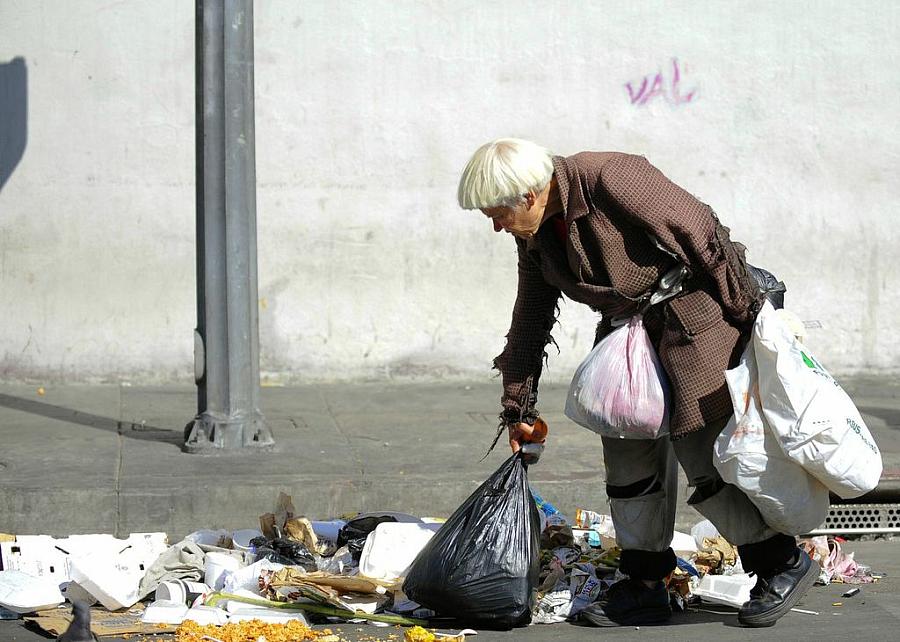Homeless teach us how fragile our own lives are

2013 National Health Journalism Fellows visit Skid Row. Photos by Gus Ruelas
I adore a good love story, so it's no surprise I enjoyed listening to Los Angeles Times columnist Steve Lopez talk about the genesis of his friendship with a homeless musician.
He was talking to National Health Journalism Fellows at the University of Southern California last week, the appetizer before they embarked on a trip to a housing project for the chronically homeless and a visit to a clinic on Los Angeles' Skid Row [Related Article on the Skid Row visit].
Lopez encountered Nathaniel Ayers on Pershing Square, where the homeless man slept in a spot chosen because it was not far from a statue of Beethoven, whom he loved. Lopez learned as their relationship developed that Ayers was a bassist trained at Juilliard. His incredible musical talent had not been able to overcome the effects of a mental illness that derailed the trajectory of his life and left him homeless in a sea of other souls whose lives had gone off different tracks. Ultimately, he went searching for a relative and ended up in Los Angeles, where he has remained.
The Ayers-Lopez friendship spawned a movie, "The Soloist." That's far less life-changing than the deep relationship that has formed between two men who are truly unlikely pals.
They go places together. Ayers socializes not only with Lopez, but with his family. They have attended games and concerts and shared casual meals, surely the hallmark of friendships, however unexpected.
The two men call each other by a more formal "Mr. Lopez" and "Mr. Ayers." It's a sign of respect and a way of leveling the many things that could be barriers to social interaction.
When Lopez writes about Ayers — about his talent and his losses and his challenges, about how hard it is to get him to trust people — he makes a massive community care about a man who so many would simply step over or skirt around should they encounter him on the street.
I believe that Lopez's passion for the man and for the challenge of getting him to accept the services that are waiting to help him spills over to caring for others who are displaced and challenged as they live on the streets. As he tells the stories of people with mental illness who live on the streets or are jailed, others care, as well.
Lopez recounted to reporters the efforts involving many people to convince Ayers, who doesn't trust easily, to move into an apartment that has been designated for him in a program that helps the chronically homeless who are mentally ill. A small community of people are part of helping the musician transition, from the talented local professional who gives music lessons inside the apartment (thus making it familiar) to the kind soul who provided a small bust of Beethoven to make the place seem homey.
There are so many homeless people scattered on streets in communities across the nation that unless you meet an individual or learn a personal story, it's easy to become indifferent or judgmental — both excuses not to care or act.
For years, I wrote about homeless issues in Utah. As I visited with individuals in the camps along the Jordan River, by underpasses and in homeless shelters, I learned many reasons that people can lose their footing, including physical illness and dire financial woes. Most of the time, it's not just a poverty issue; mental illness and substance abuse (often both and interrelated) are part of it, as well.
The biggest thing I learned, though, is how fragile we all are as humans. Take away connections like a family that not only wants to but is able to provide some support, jobs and adequate health care and many of us would be derailed, as well.
This column originally ran in the Deseret News on July 23, 2013.

